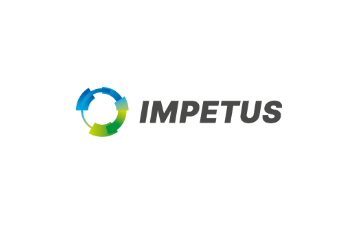
Dynamic information management approach for the implementation of climate resilient adaptation packages in European regions
October 2021 - September 2025
IMPETUS
https://climate-impetus.eu/
IMPETUS will develop and validate a coherent cross-sectoral climate change adaptation framework to accelerate the transition towards a climate-neutral and sustainable economy, empowering citizens and societal actors in the codesign of adaptation packages and related implementation pathways. This framework will accelerate the production of Innovation Packages that will integrate the methodological, technological, governance, awareness, behavioural, economic, financial and pathway components. The strength of the IMPETUS conceptual framework lays in the fact that it is rooted in the consideration that decisions on adaptation and resilience solutions have to be:
- strongly anchored in knowledge as the basis for resilience;
- co-designed and co-created with quintuple helix stakeholders, at multiple governance levels;
- “low-regret” and scalable, depending on the evolution of climate change and other drivers; and
- cost-effective and environmentally, economic and socially sustainable.
Scope
The IMPETUS conceptual framework will be constructed on the basis of multi-sectorial, multi-scale and multi-impacts solutions. The framework will include:
- on-site novel adaptative technological solutions;
- social innovations, stakeholder engagement and strategies for encouraging behavioural change;
- development, validation and assessment of region-specific adaptation pathways and innovation packages;
- use of novel AI techniques to support knowledge sharing and elaboration of dynamic adaptation pathways.
These will be tested and demonstrated through large-scale R&I demonstrations in 7 sites that cover the full range of Europe’s Bio-geographical Regions.
Objectives
IMPETUS will bring together a multi-disciplinary consortium to cover diverse objectives each linked with the corresponding Expected Impact (EI) and aligned with the UN Sustainable Development Goals (SDGs).
1. Identify, collect and upscale existing real-time territorial data, qualitative and quantitative knowledge and technical, ecological and socio-economic innovations necessary for robust and dynamic adaptation and resilience planning. (SDGs: 4, 8, 9, 10, 11, 12, 13, 17)
2. Increase knowledge-sharing and awareness on climate change through the combination of modelling tools, advanced data analytics and high visualization. This will serve to create an adaptation platform between different regions to achieve a climate change open data space. (SDGs: 4, 5, 8, 9, 10, 11, 13, 14, 15, 17)
3. Deploy and upscale in the specific regions different technological and non-technological solutions to face specific climate change needs based on previous projects and regional strategies. The deployment and upscale of the solutions will be based on existing knowledge and already demonstrated beneficial innovations. (SDGs: 8, 9, 11, 13, 17)
4. Development of IMPETUS Innovation Packages in 7 demo-sites covering the European bio-geographical regions, which will provide a horizontal methodology to share knowledge on climate adaption solutions and strategies. The demo-sites also represent different biophysical and ecological conditions, socio-economic and governance situations. (SDGs: 3, 4 6, 7, 8, 9, 10, 11, 12, 13, 14, 15, 16, 17)
5. Boost alliance and coalitions with relevant Quintuple Helix stakeholders to co-create and co-design resilient innovations packages and dynamic adaptation pathways using existing monitoring data and social-innovations, governance strategies and existing knowledge about climate change. (SDGs: 4, 5, 9, 11, 13 16, 17)
6. Promote and accelerate societal transformation through the development of open spaces to co-create and codesign with stakeholder’s climate-resilient adaptation solutions also supporting business to business. (SDGs: 9, 10, 11, 16, 17)
7. Present IMPETUS innovation packages ready to be transferred to other areas and socio-ecological systems. Replicability and transferability will be ensured by: (i) robust and clear horizontal approach; (ii) development of guidelines for implementing and deploying the RKBs; (iii) shared and flexible methodology for the development of Adaptation Pathways; (iv) clear financing and economic schemes to make the framework autonomous; and (v) stakeholder and social innovation framework validated and demonstrated through the demo-sites. (SDGs: 8, 9, 10, 11).

